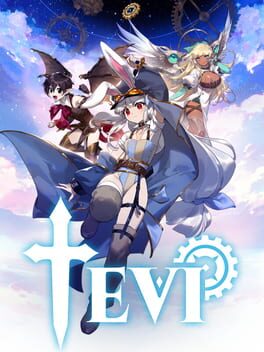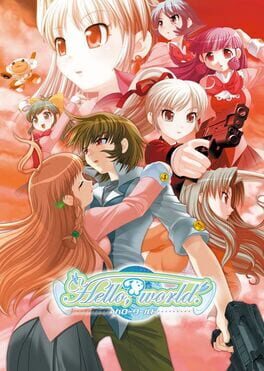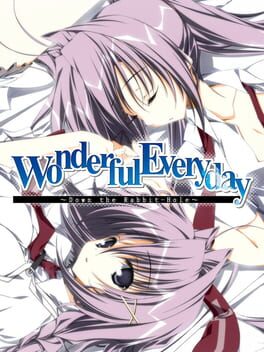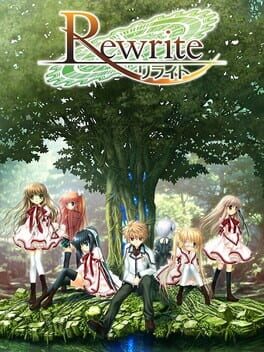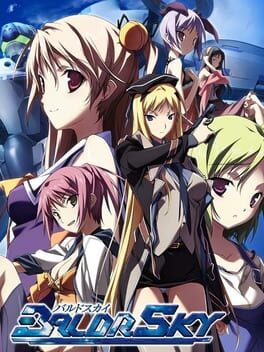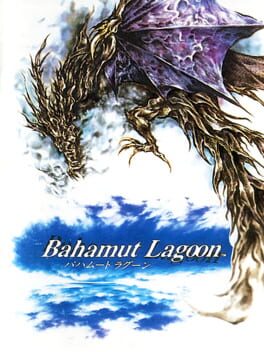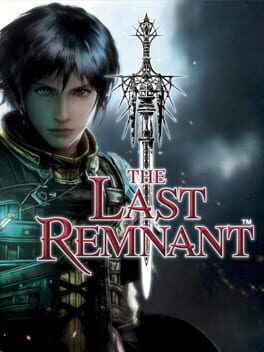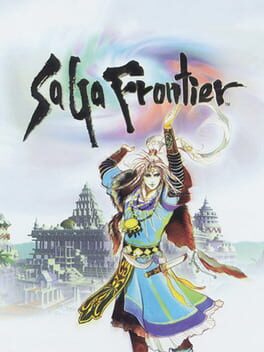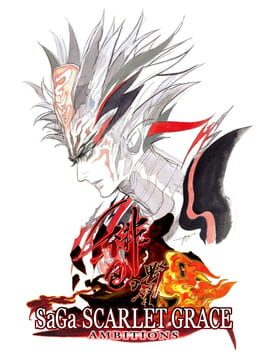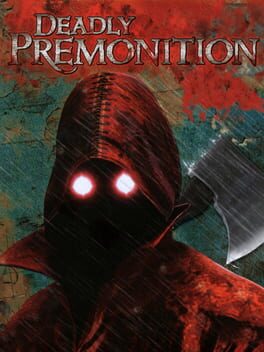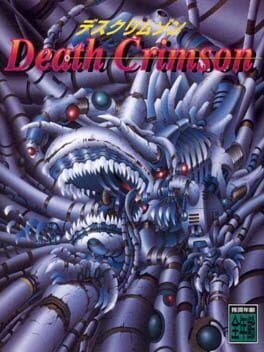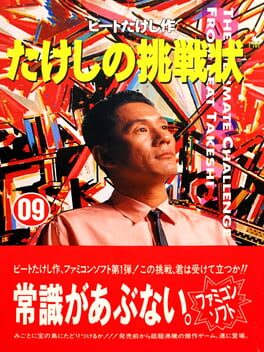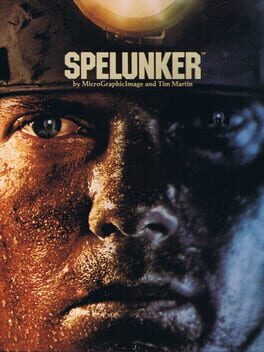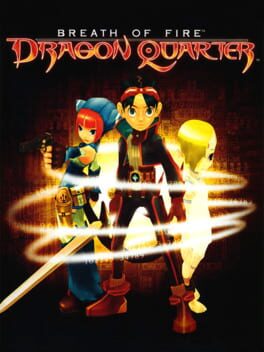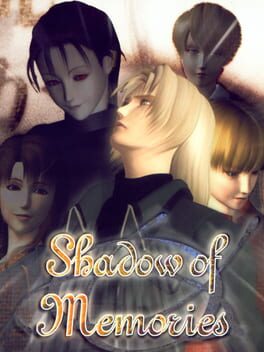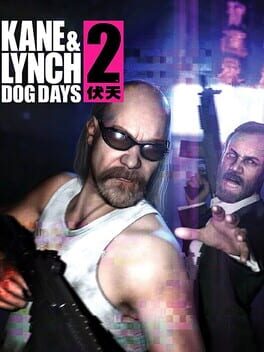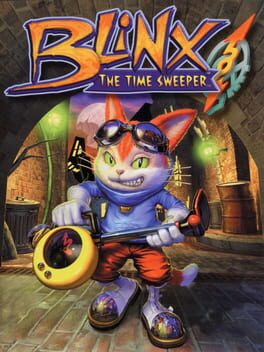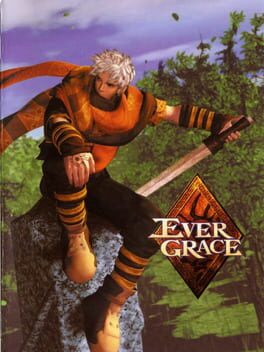Protokahn
9 reviews liked by Protokahn
Blue Archive
2021
Blue Archive
2021
Tevi
2023
Damn that was a game, time to explain why Tevi is my new favorite game of all time.
Just a warning I may ramble a little here.
Going over the most obvious thing first the bosses are phenomenal, I would say this was no surprise given how much I loved Rabi Ribi's bosses, but these broke ANY expectations I had going in. From start to end the bosses are constantly one-upping themselves, getting better and better culminating in some of the craziest final few bosses I have ever seen. Every boss is extremely distinct, all their movesets are completely original and at times will even take some VERY OBVIOUS inspiration from things such as Touhou and Devil May Cry. I love this, seeing Tevi pay homage to the games that very clearly inspired it is awesome, I adore seeing Tevi's own rendition of some iconic characters and attacks. These bosses are an absolute joy to fight, and this is one of those games where I will gladly bang my head against these bosses for hours on end not even realizing how much time has passed.
Alongside bosses being great Tevi also has ridiculously good balancing and gives a ton of customization through way of build variety and the multiple ways to customize how difficult the game actually is, even outside of the sheer number of difficulty options. The "ridiculously good balancing" part may seem controversial as it's very clear that some things are outright broken or have insane synergies but let me explain. A wise man once said, "You have control over the buttons you press" and that rings true here. Tevi's genius balancing stems from the sheer number of options you have that will vastly change how you play and how difficult the game is. Your base kit is balanced perfectly, everything you have feels about equal in strength with nothing feeling overtuned in the slightest. However, you can change this with optional equipment called "sigils" to make certain things stronger than others, and there are well over 200 of these equipables. You can obviously use a broken build with the sheer number of options you have, and spam consumable items while doing so, taking down endgame bosses with ease. But at the same time, you have the option to forgo those powerful options, making the game more difficult and drastically changing how you play at any point as you please. You can steamroll bosses, you can fight on an even playing field, or you could forgo all those customization options and fight with the odds completely stacked against you, I adore this type of game balancing. Very often I would fight a boss with a broken build, only to reset the fight near the end and switch to a build that would make the fight more difficult for fun. I always see people complaining about games with an obscene number of options having "balancing issues" because there's some obviously broken or weak options, even with Tevi, I've seen people complain about how bosses get easier as the game progresses, due to how powerful you can get. But I feel as if this is a misconception as to what good balancing actually is, outside of competitive games, good balancing isn't having all your options be at equal strength, good balancing is giving the player a wide variety of options to choose from with those options fluctuating in strength. Tevi masters this by having everything in your base kit be around equal strength, while having everything optional being at completely fluctuating strengths that you can change at any point. Using something less powerful will not detract from the actual gameplay and force you to avoid certain skills or mechanics, it will only affect how easy the game is, and that's why I believe Tevi's balancing is genius.
Exploration is also an absolute joy. I was a bit taken off guard at first due to how different this game's approach to exploration was compared to Rabi Ribi's. While Rabi Ribi is completely freeform with what you decide to do at any given point, Tevi takes a more linear route with bosses past chapter 1 being ordered and movement options essentially being unlocked with story progression. I may still prefer how Rabi Ribi handles its freeform progression, allowing you to get even endgame gear immediately, but that isn't to say I think Tevi is too far off with its linear progression. Tevi's linearity allows for the areas to be more catered to your current gear at any point, placing more emphasis on things that you may have just unlocked, leading to Tevi having far better areas in my opinion. Tevi's individual areas are a joy to explore and there were very few points where I wasn't having a complete blast exploring them, fuck mazes tho. Re-exploring areas to find hidden items and whatnot is also extremely fun with the only complaint I actually have being the odd number of places that look they should have items or resources.
Getting some last thoughts out of the way, aesthetically Tevi is fantastic. The soundtrack is incredible and goes way harder than it has ANY right to go and visually I adore how this game looks. Boss fights look incredible ESPECIALLY in comparison to Rabi Ribi. They have some of the coolest bullet patterns and attacks I have ever seen in a game period. I also love the artstyle of this game from the fantastic pixel art to the equally as good portraits to some of the best CGs I have ever seen, the quality here is unreal and they clearly were trying to go above and beyond in this regard. I also had fun with the story, while it's nothing too crazy and the main plot is pretty basic the characters are extremely fun, and dialogue is fantastic the whole way through. I especially love the main trio & the father/daughter dynamic between Tevi & her dad, it's really cute. I have also seen people already complaining about how "horny" or "anime" this game is and to that I say to refer to my Rabi Ribi review and read through the comments bc they're pretty funny (https://www.backloggd.com/u/AiriBan/review/953999/), for a tldr y'all complaining are pussies and only have yourselves to blame, fuck you.
I prolly missed something while writing this review but oh wellsies
TLDR this game is crazy fucking good and broke any expectations I had before it released. I love Tevi.
Just a warning I may ramble a little here.
Going over the most obvious thing first the bosses are phenomenal, I would say this was no surprise given how much I loved Rabi Ribi's bosses, but these broke ANY expectations I had going in. From start to end the bosses are constantly one-upping themselves, getting better and better culminating in some of the craziest final few bosses I have ever seen. Every boss is extremely distinct, all their movesets are completely original and at times will even take some VERY OBVIOUS inspiration from things such as Touhou and Devil May Cry. I love this, seeing Tevi pay homage to the games that very clearly inspired it is awesome, I adore seeing Tevi's own rendition of some iconic characters and attacks. These bosses are an absolute joy to fight, and this is one of those games where I will gladly bang my head against these bosses for hours on end not even realizing how much time has passed.
Alongside bosses being great Tevi also has ridiculously good balancing and gives a ton of customization through way of build variety and the multiple ways to customize how difficult the game actually is, even outside of the sheer number of difficulty options. The "ridiculously good balancing" part may seem controversial as it's very clear that some things are outright broken or have insane synergies but let me explain. A wise man once said, "You have control over the buttons you press" and that rings true here. Tevi's genius balancing stems from the sheer number of options you have that will vastly change how you play and how difficult the game is. Your base kit is balanced perfectly, everything you have feels about equal in strength with nothing feeling overtuned in the slightest. However, you can change this with optional equipment called "sigils" to make certain things stronger than others, and there are well over 200 of these equipables. You can obviously use a broken build with the sheer number of options you have, and spam consumable items while doing so, taking down endgame bosses with ease. But at the same time, you have the option to forgo those powerful options, making the game more difficult and drastically changing how you play at any point as you please. You can steamroll bosses, you can fight on an even playing field, or you could forgo all those customization options and fight with the odds completely stacked against you, I adore this type of game balancing. Very often I would fight a boss with a broken build, only to reset the fight near the end and switch to a build that would make the fight more difficult for fun. I always see people complaining about games with an obscene number of options having "balancing issues" because there's some obviously broken or weak options, even with Tevi, I've seen people complain about how bosses get easier as the game progresses, due to how powerful you can get. But I feel as if this is a misconception as to what good balancing actually is, outside of competitive games, good balancing isn't having all your options be at equal strength, good balancing is giving the player a wide variety of options to choose from with those options fluctuating in strength. Tevi masters this by having everything in your base kit be around equal strength, while having everything optional being at completely fluctuating strengths that you can change at any point. Using something less powerful will not detract from the actual gameplay and force you to avoid certain skills or mechanics, it will only affect how easy the game is, and that's why I believe Tevi's balancing is genius.
Exploration is also an absolute joy. I was a bit taken off guard at first due to how different this game's approach to exploration was compared to Rabi Ribi's. While Rabi Ribi is completely freeform with what you decide to do at any given point, Tevi takes a more linear route with bosses past chapter 1 being ordered and movement options essentially being unlocked with story progression. I may still prefer how Rabi Ribi handles its freeform progression, allowing you to get even endgame gear immediately, but that isn't to say I think Tevi is too far off with its linear progression. Tevi's linearity allows for the areas to be more catered to your current gear at any point, placing more emphasis on things that you may have just unlocked, leading to Tevi having far better areas in my opinion. Tevi's individual areas are a joy to explore and there were very few points where I wasn't having a complete blast exploring them, fuck mazes tho. Re-exploring areas to find hidden items and whatnot is also extremely fun with the only complaint I actually have being the odd number of places that look they should have items or resources.
Getting some last thoughts out of the way, aesthetically Tevi is fantastic. The soundtrack is incredible and goes way harder than it has ANY right to go and visually I adore how this game looks. Boss fights look incredible ESPECIALLY in comparison to Rabi Ribi. They have some of the coolest bullet patterns and attacks I have ever seen in a game period. I also love the artstyle of this game from the fantastic pixel art to the equally as good portraits to some of the best CGs I have ever seen, the quality here is unreal and they clearly were trying to go above and beyond in this regard. I also had fun with the story, while it's nothing too crazy and the main plot is pretty basic the characters are extremely fun, and dialogue is fantastic the whole way through. I especially love the main trio & the father/daughter dynamic between Tevi & her dad, it's really cute. I have also seen people already complaining about how "horny" or "anime" this game is and to that I say to refer to my Rabi Ribi review and read through the comments bc they're pretty funny (https://www.backloggd.com/u/AiriBan/review/953999/), for a tldr y'all complaining are pussies and only have yourselves to blame, fuck you.
I prolly missed something while writing this review but oh wellsies
TLDR this game is crazy fucking good and broke any expectations I had before it released. I love Tevi.
Talking flowers, really?
This series has been around for god knows how long and the kids who grew up with the original game on the NES are old enough now to collect social security. So why does the series continue to go for the kiddie audience instead of appealing to his actual fans, the adults? Think of how awesome a Mario game where he swears and uses mushrooms like drugs would be. Such a shame that the lazy devs don’t understand what the real fans want.
This series has been around for god knows how long and the kids who grew up with the original game on the NES are old enough now to collect social security. So why does the series continue to go for the kiddie audience instead of appealing to his actual fans, the adults? Think of how awesome a Mario game where he swears and uses mushrooms like drugs would be. Such a shame that the lazy devs don’t understand what the real fans want.
"Hello, world."
2002
Drakengard
2003
Drakengard
2003
this game requires no introduction anymore so i'm not beating around the bush. drakengard has been on my mind a fair bit recently - on the off chance you'll forgive a second log i think it's worth examining some of what the title accomplishes uniquely well, or what it's able to achieve with respect to the various titles that it's in conversation with. first of all: there's nothing quite as flatline-inducing or revealing of the author's own tendencies as reading that drakengard was intentionally poorly designed, a commonly held idea in various hobbyist communities frustratingly stemming just as often from its supporters as from its detractors. not only is this a frightfully pedantic and dull reduction of the text - it's also just an elaborately constructed fiction masking deeper truths. for instance, i think it's plain as day our burgeoning critical language still struggles with titles seemingly antithetical to traditional enjoyment, and are only able to escape from suffocating evaluative lexicon through irony or genre labels. survival horror isn't normally 'fun' & people appear willing to understand this so the genre gets a normative pass en masse, although it seems worth mentioning that the longer they exist in the public eye the more their mechanical frameworks get totally demystified by the public, arguably reducing them to vehicles for pleasure and gratification anyways, resident evil being the prime example.
drakengard, of course, isn't survival horror. it's largely a musou with some horror trappings, but it's rather plain about its affectation. however, because the traditional 'game' part of it is in such conflict with its aesthetic, we end up with the idea that this dissonance is a result of intentionally languid, engineered dissatisfaction. oh wow that wacky yoko taro wanted you to feel bad so he made his debut game bad. bzzzzt. wrong. square enix wanted a commercial success with drakengard. if they didn't, they wouldn't have requested that a project starting out as a simple remix of ace combat (owing massive inspiration to electrosphere in particular, another game that combines peerless arcade bluster with bleak narrative proceedings) would incorporate elements of its contemporary blockbuster peer, dynasty warriors. none of this is to say that drakengard can't be an awkward game, but it's in large part due to a friction with cavia's inexperience/lack of technical expertise, their attempts at holding true to their initial vision for the project, and square enix being desperate for a worthy competitor to koei tecmo's success.
here's where i'll stake a claim on something potentially contentious and risible. on the basis of the title's struggles in production & development, it is somewhat shocking that drakengard is not just 'not bad', but is a totally competent musou game. given the milieu in which it released, you might even dare to call it 'good', or 'well-made'. i'll double down with something absolutely no one wants to hear: most people have no point of reference because musou is rarely put in its historic context, appreciated for its strengths, or even, broadly speaking, played. disregarding popular experimental offshoot licensed games which carry their own unique magnetism, dynasty warriors has an especially prevalent stigma in contemporary action game circles, and few seem willing to return to reevaluate the franchise. if we accept this as the case, we can begin to understand why nostalgia is the primary driver of fondness for early musou, and why you always hear dynasty warriors 3 is the best one. 'load of bull', you say, 'drakengard is not good', you say, 'dynasty warriors sold millions and is beloved for inventing the drama; surely it's better', you say, but take a look at these admittedly small sample sizes (evidence A and evidence B) and you tell me which is actually the niche ip at present. one of these broader game worlds got a FFXIV collaboration. it was not dynasty warriors.
anyways the idea that drakengard could be a respected peer to dynasty warriors - or even, perhaps, better - is not ahistorical. drakengard came out in 2003, only a few months after the release of dynasty warriors 4. by this point in the dynasty warriors timeline, your only sources of inspiration for the musou canon are dynasty warrior 2 and dynasty warriors 3. they're fine games for what they are - content-rich, pop recontextualizations of romance of the three kingdoms that fold the intense political drama, grandiose character dynamics, and poeticizing of feudal history intrinsic to the novel and morphs them into larger-than-life battles of one against one hundred. it works for that series, but having played dynasty warriors 3, it's also very simply orchestrated. DW3 is kinetic and energetic, sure, but form is not function. as a still nascent series, DW3 has yet to experiment with elements that would come to define later entries, such as a strong emphasis on field management - its presence in 3 is largely muted and, dependent upon your stats, can often be negated. it is mostly a game of fulfilling your objectives, grinding up your stats, and engaging in undemanding combat pulling the same strong combo strings against some unique generals and a multitude of carbon copy generic ones. and i happen to appreciate it for what it is, but there is no question in my mind if you slotted that exact same mechanical framework into drakengard's tone and setting, it would be similarly deemed bad on purpose.
other than its tone what does drakengard do differently from this purely mechanical perspective? honestly, not too much from DW3! archers are still often priority targets, because if you don't prioritize them you will get knocked off yourhorse dragon. mission structure is usually quite similar, arguably with a bit less back and forth. combos require virtually the exact same input. the camera in both games is kind of fucked up. aside from abstruse unlock requirements and a...unique, system of progression, the biggest differences are mostly relegated to additions rather than subtractions. there are more enemy designs than just grunt soldiers. you can dodge now. the game is weapon-driven rather than character-driven ala DW3, which allows for its own form of unique experimentation. the soundtrack is excellent, i'm not accepting complaints. to aid in breaking up the pace, there are aerial missions that play somewhat comparably to panzer dragoon on-rail segments which are actually quite fun; likewise, the hybrid missions allow for angelus to be used as a means of offence in ground warfare and rain hellfire from above. it keeps things relatively varied. there's no troops to manage because caim is fighting a losing war and willingly formed a pact with the only being capable of potentially turning the tides, and the game is content to use the musou form to communicate ideas about caim and angelus to great effect.
of course, it's the narrative which gives drakengard a lot of its greatest texture (and is also demonstrative of its greatest strengths and appeals as a DW clone), but we can save discussion of that for some other time; for now it's more important for me to say that it's not quite the outright condemnation of violence through ludology that so many claim it is (it's far more interested in more subtle forms of violence than the explicit and ceaseless murder it depicts anyways). really, this was just a self-indulgent exercise in placing drakengard in its historic context once and for all, away from all the retrospectives it's been getting as a result of nier's runaway success. drakengard is a game that won't be for most, but it's a game that's lingered in my memory long since i first played it. it takes an, at the time, relatively new genre, and through sheer passion and dedication spins it into a uniquely transgressive idea while still remaining an enjoyable title to let unfold. if it feels numbing or meditative, that's more or less the exact emotional resonance that something like DW3 is targeting - drakengard just uses it to achieve more things than a sense of gratifying white noise. it remains peerless because of all of its contradictions, because of how messy and thorny it is as a game, and because we'll never see anything approaching this utterly unique interplay of emotional rhythms and macabre, uncanny storytelling wearing the skin of its crowdpleasing predecessors ever again.
drakengard, of course, isn't survival horror. it's largely a musou with some horror trappings, but it's rather plain about its affectation. however, because the traditional 'game' part of it is in such conflict with its aesthetic, we end up with the idea that this dissonance is a result of intentionally languid, engineered dissatisfaction. oh wow that wacky yoko taro wanted you to feel bad so he made his debut game bad. bzzzzt. wrong. square enix wanted a commercial success with drakengard. if they didn't, they wouldn't have requested that a project starting out as a simple remix of ace combat (owing massive inspiration to electrosphere in particular, another game that combines peerless arcade bluster with bleak narrative proceedings) would incorporate elements of its contemporary blockbuster peer, dynasty warriors. none of this is to say that drakengard can't be an awkward game, but it's in large part due to a friction with cavia's inexperience/lack of technical expertise, their attempts at holding true to their initial vision for the project, and square enix being desperate for a worthy competitor to koei tecmo's success.
here's where i'll stake a claim on something potentially contentious and risible. on the basis of the title's struggles in production & development, it is somewhat shocking that drakengard is not just 'not bad', but is a totally competent musou game. given the milieu in which it released, you might even dare to call it 'good', or 'well-made'. i'll double down with something absolutely no one wants to hear: most people have no point of reference because musou is rarely put in its historic context, appreciated for its strengths, or even, broadly speaking, played. disregarding popular experimental offshoot licensed games which carry their own unique magnetism, dynasty warriors has an especially prevalent stigma in contemporary action game circles, and few seem willing to return to reevaluate the franchise. if we accept this as the case, we can begin to understand why nostalgia is the primary driver of fondness for early musou, and why you always hear dynasty warriors 3 is the best one. 'load of bull', you say, 'drakengard is not good', you say, 'dynasty warriors sold millions and is beloved for inventing the drama; surely it's better', you say, but take a look at these admittedly small sample sizes (evidence A and evidence B) and you tell me which is actually the niche ip at present. one of these broader game worlds got a FFXIV collaboration. it was not dynasty warriors.
anyways the idea that drakengard could be a respected peer to dynasty warriors - or even, perhaps, better - is not ahistorical. drakengard came out in 2003, only a few months after the release of dynasty warriors 4. by this point in the dynasty warriors timeline, your only sources of inspiration for the musou canon are dynasty warrior 2 and dynasty warriors 3. they're fine games for what they are - content-rich, pop recontextualizations of romance of the three kingdoms that fold the intense political drama, grandiose character dynamics, and poeticizing of feudal history intrinsic to the novel and morphs them into larger-than-life battles of one against one hundred. it works for that series, but having played dynasty warriors 3, it's also very simply orchestrated. DW3 is kinetic and energetic, sure, but form is not function. as a still nascent series, DW3 has yet to experiment with elements that would come to define later entries, such as a strong emphasis on field management - its presence in 3 is largely muted and, dependent upon your stats, can often be negated. it is mostly a game of fulfilling your objectives, grinding up your stats, and engaging in undemanding combat pulling the same strong combo strings against some unique generals and a multitude of carbon copy generic ones. and i happen to appreciate it for what it is, but there is no question in my mind if you slotted that exact same mechanical framework into drakengard's tone and setting, it would be similarly deemed bad on purpose.
other than its tone what does drakengard do differently from this purely mechanical perspective? honestly, not too much from DW3! archers are still often priority targets, because if you don't prioritize them you will get knocked off your
of course, it's the narrative which gives drakengard a lot of its greatest texture (and is also demonstrative of its greatest strengths and appeals as a DW clone), but we can save discussion of that for some other time; for now it's more important for me to say that it's not quite the outright condemnation of violence through ludology that so many claim it is (it's far more interested in more subtle forms of violence than the explicit and ceaseless murder it depicts anyways). really, this was just a self-indulgent exercise in placing drakengard in its historic context once and for all, away from all the retrospectives it's been getting as a result of nier's runaway success. drakengard is a game that won't be for most, but it's a game that's lingered in my memory long since i first played it. it takes an, at the time, relatively new genre, and through sheer passion and dedication spins it into a uniquely transgressive idea while still remaining an enjoyable title to let unfold. if it feels numbing or meditative, that's more or less the exact emotional resonance that something like DW3 is targeting - drakengard just uses it to achieve more things than a sense of gratifying white noise. it remains peerless because of all of its contradictions, because of how messy and thorny it is as a game, and because we'll never see anything approaching this utterly unique interplay of emotional rhythms and macabre, uncanny storytelling wearing the skin of its crowdpleasing predecessors ever again.
This review contains spoilers

